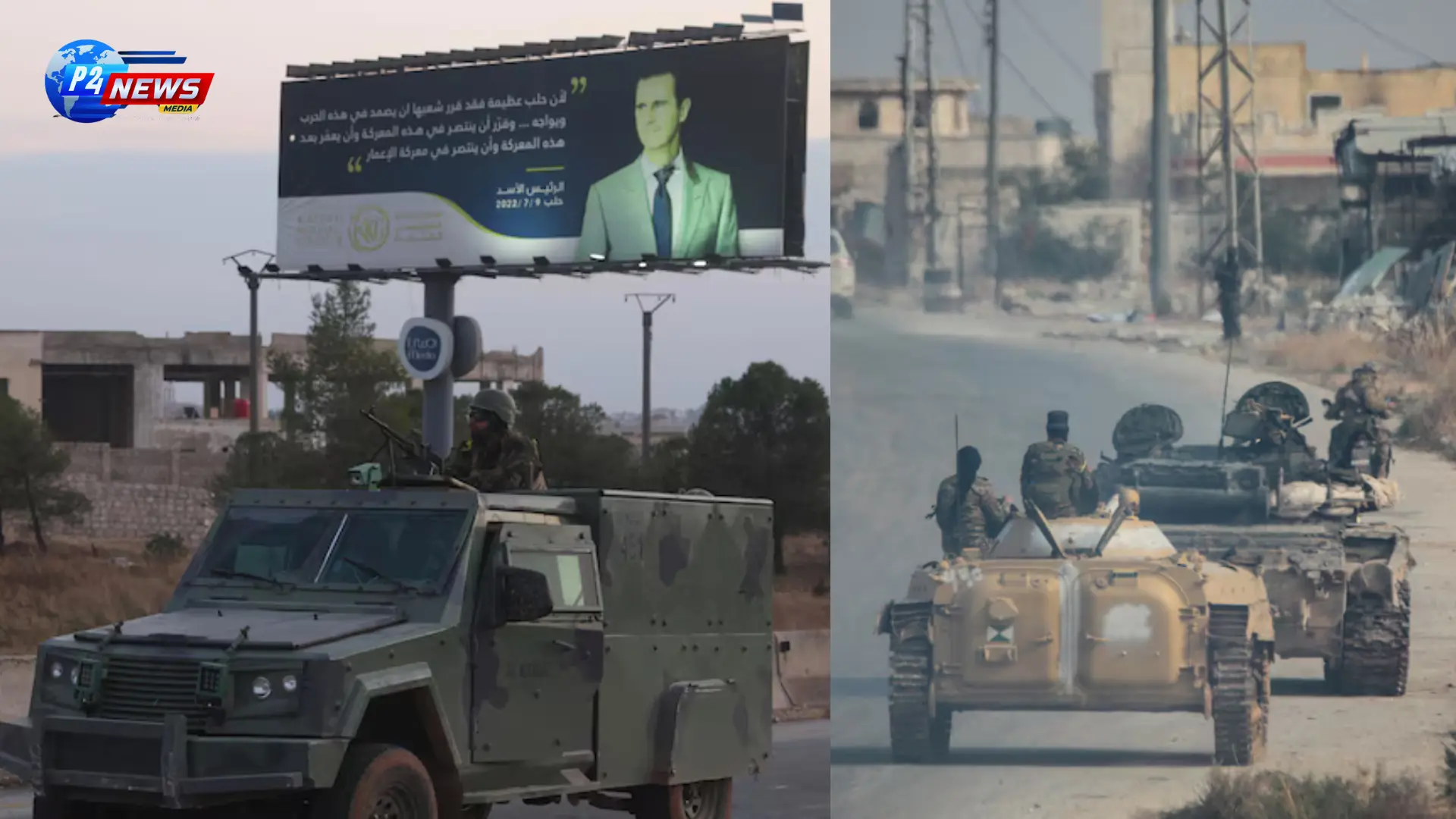The ongoing conflict in Syria has seen a significant escalation with rebel forces claiming dominance over Idlib province. As fighting erupts in Aleppo, the Syrian army faces unprecedented challenges, leading to mass civilian evacuations.
The ongoing conflict in Syria has seen a significant escalation with rebel forces claiming dominance over Idlib province. As fighting erupts in Aleppo, the Syrian army faces unprecedented challenges, leading to mass civilian evacuations.
Rebel troops have reportedly asserted full control over Idlib province, following a bold and coordinated attack on Syrian government forces in Aleppo. This development marks one of the most significant challenges faced by President Bashar al-Assad's regime in several years, provoking a response from the Syrian army amid rising casualties among its ranks.
The intensity of the clashes has prompted thousands of civilians to flee the city of Aleppo, seeking refuge in government-held territories such as Latakia and Salamiya. The unexpected offensive, primarily led by the Islamist faction Hayat Tahrir al-Sham, has thrust the long-stagnant front lines of the civil war back into active conflict.
Since the war's inception in 2011, the ongoing violence has resulted in the deaths of hundreds of thousands and the displacement of millions, with a semblance of stability having been reached in recent years due to the support of Iranian and Russian forces for Assad's government. However, the recent escalation after the rebels took aim at key positions in Aleppo has threatened to unravel those gains.
As the conflict rekindles, Russian airstrikes target rebel supply routes, reportedly killing numerous combatants. Independent monitors have documented the aftermath of these strikes, highlighting the precarious situation for both military personnel and civilians in the affected areas.
Amidst the chaos, individuals displaced from Aleppo have begun returning to their city, with sentiments of nostalgia mixed with the bitter reality of ongoing violence. For some, like Ali Jumaa, a rebel fighter, the return to Aleppo encapsulates a complex emotional landscape.
The Syrian military acknowledges the depth of the rebel incursion and is reportedly strategizing a counteroffensive to regain lost territory, particularly through renewed air strikes targeting rebel concentrations. Reports indicate that Aleppo’s airport has also come under rebel control, marking another pivotal shift in the conflict dynamics.
This resurgence of violence draws attention to the intricate web of alliances and oppositions that characterizes the Syrian conflict. While Russia and Iran back Assad’s military efforts, Türkiye's support for certain rebel factions adds another layer of complexity to the struggle for control in the northwest region.
Recent diplomatic communications between Russian and Turkish officials underscore mutual concerns regarding the deteriorating situation. Both nations seem to recognize the urgent need for coordinated actions to halt further escalation and provide stability to the region.
The humanitarian impact of the renewed fighting is profound, with the Syrian Civil Defense, known as the White Helmets, reporting civilian casualties amidst sustained air raids on residential neighborhoods. Additionally, the Kurdish People's Protection Units (YPG) have capitalized on the government’s diversion of attention, expanding their influence in previously contested areas.
Rebel leadership suggests that their swift advance stems from a lack of adequate reinforcements for government forces, particularly from Iranian-backed militias, who are currently engaged in battles elsewhere. This scenario has led to a power vacuum that the rebels are eager to exploit.
As the conflict continues, the rebels leverage social media to project their territorial achievements, engaging with locals while simultaneously contending with the state's narrative that frames them as terrorists. These contrasting portrayals reflect the broader struggle for legitimacy and control over the perceptions surrounding the ongoing war.
The situation remains fluid, with military build-up by Syrian forces and Assadian allies continuing, while local populations grapple with uncertainty and fear. The complexities of the Syrian civil war remain deeply intertwined with broader geopolitical currents, ensuring that this volatile situation will warrant continued attention from the international community.
As Aleppo again becomes a focal point in the Syrian conflict, the coming days could prove critical in determining the direction of the war and the future for millions caught in its relentless grip.
Like
Dislike
Love
Angry
Sad
Funny
Pray
'Trump Tracker: Tulsi Gabbard's Surprising Appointment as US Intelligence Chief
November 14, 20249th Ayurveda Day in Melbourne: A Celebration of Ayurvedic Innovations and Global Health Impact
November 10, 2024🍪 We Value Your Privacy and Experience Hi there! We use cookies to enhance your browsing experience, provide personalized content, and analyze site traffic. By continuing to use our site, you consent to our use of cookies.







Comments 0